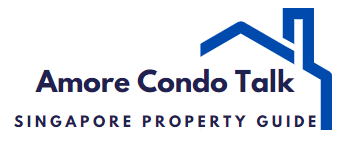Buying your first home in Singapore is a rewarding achievement, but it is also a massive financial commitment and probably one of the most expensive purchases or investments, whatever you may call it, you will make in your lifetime. As more and more foreigners are investing in Singapore’s property market, prices of public and private housing are going up, increasing the demand for mortgages.
In this article, we will discuss what first-time property buyers in Singapore need to know about mortgages and utilizing CPF to finance the purchase of a condo or private property.
Identify Your Property Needs
If you’re investing in the property market in Singapore for the first time, whether it’s a condo or a bungalow, it’s important to understand the main categories of property that are allowed for purchase.
Singapore offers private housing (like landed properties, condominiums, and private apartments), public housing (HDB flats), and executive condominiums, which blend features of both.
The choice of property largely depends on individual needs and circumstances. For instance, larger families may prefer the spaciousness of landed properties, while those who enjoy amenities like a gym or swimming pool might find condominiums more appealing.
Eligibility also plays a key role, especially for public housing. HDB flats are more affordable and come with additional financial support, such as CPF grants. First-time buyers can receive up to SGD 80,000 in grants for a BTO flat or SGD 160,000 for a resale flat, provided they meet criteria like income ceilings. Singles can purchase public housing after turning 35, with options like two-room flexi flats in non-mature estates.
Location is another crucial factor. Prospective buyers should explore neighborhoods to ensure they suit their lifestyle. Proximity to MRT stations, workplaces, schools, supermarkets, shopping malls, entertainment facilities, and other amenities can increase the property’s resale value.
Financing Your First Condo
Once you’ve determined the type of home you can afford and are content with the location, you can start exploring the expenses associated with homeownership and the various loan options available to you. A mortgage loan repayment calculator is a helpful tool for estimating the purchase price and the housing loan amount within your budget.
Here are some costs to keep in mind:
Down Payments
Most properties in Singapore require a down payment. The down payment varies depending on the type of loan. For a bank housing loan, at least 25% of the purchase price is required, with 5% paid in cash. For an HDB loan, the down payment is 15%, which CPF savings can fully cover. More on that later in the article. However, eligibility for an HDB loan depends on factors like income limits and the flat’s remaining lease.
Mortgage Repayments
Mortgage repayments should ideally not exceed 30% of a buyer’s monthly income, though the CPF Board recommends a more cautious 25%. Additionally, the Total Debt Servicing Ratio (TDSR) should be capped at 55% of gross monthly income.
Other Related Costs
In addition to the property’s purchase price, there are hidden costs to consider. These include stamp duties, legal fees, property tax, maintenance fees, renovation expenses, real estate agent commissions, and fire insurance.
Using CPF For Private Condo Property
If you’re considering using your CPF savings to buy a condo or private property in Singapore, there are a few rules and limitations you need to be aware of. Many assume they can entirely use their CPF savings to fund their property purchase, so they don’t need to worry about cash. But that’s not the case. CPF funds are meant to support your retirement; therefore, the Singapore authorities placed restrictions on how much can be used for property financing.
How Much CPF Savings Can I Use to Purchase A Condo?
For private property loans, banks typically allow borrowing up to 75% of the property’s price or value, whichever is lower. The remaining 25% is split into two parts: 20% can be paid using CPF savings or cash, while the final 5% must be paid in cash. Banks have their own eligibility criteria, and interest rates vary. Monthly mortgage repayments and any changes to them are subject to the bank’s terms and approval.
CPF also encourages keeping a safety buffer of up to SGD 20,000 in the Ordinary Account (OA). This reserved amount can help cover housing loan payments for at least six months during unexpected situations like job loss or health issues.
There’s also a cap on how much CPF can be used for private property purchases. Buyers can use up to 120% of the property’s Valuation Limit (VL) with a bank loan. Beyond this, the remaining loan must be paid in cash.

